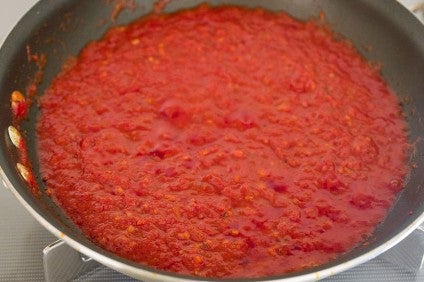
Italy’s campaign to introduce labelling on food to identify the source of origin is to be extended to tomato-based products.
It is a move that will be seen as an attempt to counter rising foreign imports – notably from China – undermining Italian producers but Rome can expect to face criticism for taking unilateral action ahead of similar measures being implemented at the European Union level.

Discover B2B Marketing That Performs
Combine business intelligence and editorial excellence to reach engaged professionals across 36 leading media platforms.
In July, Italy announced it was introducing labelling on pasta and rice to identify the source of origin. Dried pasta packs will have to identify the country of grain cultivation and grinding, while rice packets should reveal the source of production, processing and packaging.
Now it has announced its intention to add tomato-based products to that list.
Maurizio Martina, Italy’s Minister of Agriculture, told the Italian press the move was in response to the merger of two large tomato exporters – Pomi and De Rica.
Italy also appears to have become frustrated at the speed at which the European Union is implementing similar measures.

US Tariffs are shifting - will you react or anticipate?
Don’t let policy changes catch you off guard. Stay proactive with real-time data and expert analysis.
By GlobalDataThe EU wants food labelling to be clearer and indicate the origin of food when it is not the same as the primary ingredient. The regulation – expected to be introduced later this year – seeks to change current rules, under which a processed product marketed as “made in Italy”, say, can contain imported ingredients without the need to tell the consumer.
But Italy has chosen to go ahead with legislation without waiting for Brussels, which, according to Martina, “chose not to proceed in a timely manner with the full implementation of the labelling regulation”.
Italy is trying to ‘protect’ its tomato-product industry from Chinese exports.
Imports of Chinese tomato puree increased by 43% in 2016, according to Italian farmers’ union Coldiretti while China’s share of the world processed tomato market has been growing and is predicted to overcome Italy in 2017 and become the second largest producer after the US.





